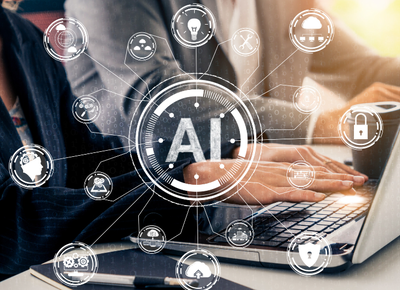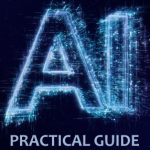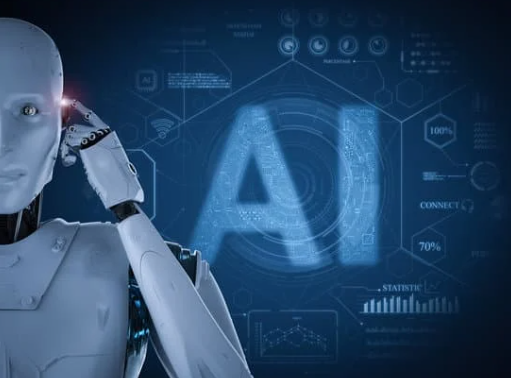Comprehensive Guide to AI Tools & AI Software for Developers and Businesses
As artificial intelligence (AI) continues to advance, an extensive array of AI tools and AI software solutions have emerged for developers and businesses. In this in-depth guide, we’ll cover open source AI tools, AI-powered analytics tools and techniques, AI frameworks and libraries, and essential AI software for businesses.
A Guide to AI Frameworks and Libraries
AI frameworks and libraries simplify the development process for AI-powered applications. Some popular AI frameworks and libraries include:
- TensorFlow: Developed by Google Brain, TensorFlow is one of the most well-known AI tools. It’s an open-source library used for numerical computation and large-scale machine learning. TensorFlow’s flexible architecture allows for easy deployment of computation across various platforms, including CPUs, GPUs, and TPUs.
- PyTorch: Developed by Facebook, PyTorch is a flexible deep learning framework known for its dynamic computation graph, making it ideal for research and rapid prototyping.
- Keras: A high-level neural network library, Keras streamlines the development of deep learning models with its user-friendly API and modular design.
- Scikit-learn: A comprehensive library for machine learning in Python, Scikit-learn provides a variety of algorithms and AI tools for data mining and data analysis.
- NLTK: A leading platform for natural language processing in Python, NLTK offers easy-to-use interfaces to various corpora and lexical resources, making it a go-to choice for text analytics tasks.
Essential AI Software for Businesses
AI software solutions can enhance business processes, improve customer experiences, and drive competitive advantages. Here are some essential AI tools and software solutions for businesses:
- Chatbots: AI-powered chatbots, such as IBM Watson Assistant, enable businesses to provide 24/7 customer support, improving customer satisfaction and reducing response times.
- AI generative art tools for image creation and art works.
- Marketing Automation: AI-driven marketing automation tools, like HubSpot, help businesses optimize marketing strategies and campaigns by analyzing user data and providing personalized content.
- CRM: AI-enhanced CRM systems, such as Salesforce Einstein, offer predictive analytics and intelligent recommendations, allowing sales teams to target leads more effectively and close deals faster.
- HR and Recruitment: AI software, like Ideal, streamlines recruitment by screening and shortlisting candidates based on predefined criteria, saving time and resources.
- Cybersecurity: AI-powered cybersecurity tools, such as Darktrace, detect and respond to threats in real-time, safeguarding businesses from potential cyberattacks and data breaches.
Top Ten Open Source AI Tools for Developers
Open source AI tools empower developers to create intelligent applications without incurring high costs. Here are the top 10 open source AI tools to consider:
- TensorFlow: Developed by Google, TensorFlow is a popular library for machine learning and deep learning, enabling developers to build complex AI models with ease.
- PyTorch: A powerful deep learning library created by Facebook, PyTorch offers a dynamic computation graph, making it ideal for research and rapid prototyping.
- Apache MXNet: A highly scalable deep learning framework, Apache MXNet allows developers to create and train large neural networks efficiently.
- Caffe: Designed for image classification and convolutional neural networks, Caffe is a fast, lightweight library for computer vision tasks.
- Keras: A user-friendly neural network library, Keras simplifies the development of deep learning models with its high-level API.
- Theano: Combining the power of a computer algebra system with an optimizing compiler, Theano enables developers to optimize and evaluate mathematical expressions effectively.
- Scikit-learn: A comprehensive Python library for machine learning, Scikit-learn offers various algorithms and tools for data mining and data analysis.
- Gensim: A powerful library for topic modeling and document similarity analysis, Gensim is particularly suited for large text corpora.
- SpaCy: A high-performance library for natural language processing, SpaCy allows developers to process and analyze text data efficiently.
- OpenAI Gym: OpenAI Gym is a toolkit for developing and comparing reinforcement learning algorithms. It supports teaching agents everything from walking to playing games like Pong or Go. OpenAI Gym provides an easy-to-use suite of tasks that range from controlling a robot to playing games.

Analytics AI Tools – Powered Analytics Tools and Techniques
AI-driven analytics AI tools help businesses uncover valuable insights and make informed decisions. Some popular AI-powered analytics tools include:
- Google Analytics Intelligence: Leveraging machine learning, this tool analyzes user data and provides actionable insights to improve website performance.
- IBM Watson Analytics: Offering advanced data analysis, IBM Watson Analytics uses AI to discover patterns and trends in data, making it accessible even for non-technical users.
- Microsoft Power BI: Combining data visualization with AI capabilities, Power BI enables businesses to create interactive reports and gain insights from complex data sets.
- Tableau: With built-in AI and machine learning features, Tableau allows users to analyze data and generate visualizations effortlessly.
- RapidMiner: A data science platform, RapidMiner uses AI techniques like machine learning, predictive analytics, and natural language processing to analyze large datasets and uncover hidden insights.
Final Thoughts
In conclusion, AI tools, or artificial intelligence tools, are playing a crucial role in the advancement of technology. They’re making AI accessible, driving innovation, and transforming industries. Whether you’re a business looking to improve your processes, a researcher aiming to push the boundaries of what’s possible, or a hobbyist interested in exploring AI and AI tools, there’s an AI tool out there for you.
Remember, the world of AI is vast and constantly evolving. So, keep exploring, keep learning, and keep innovating. The future of AI is in your hands!

